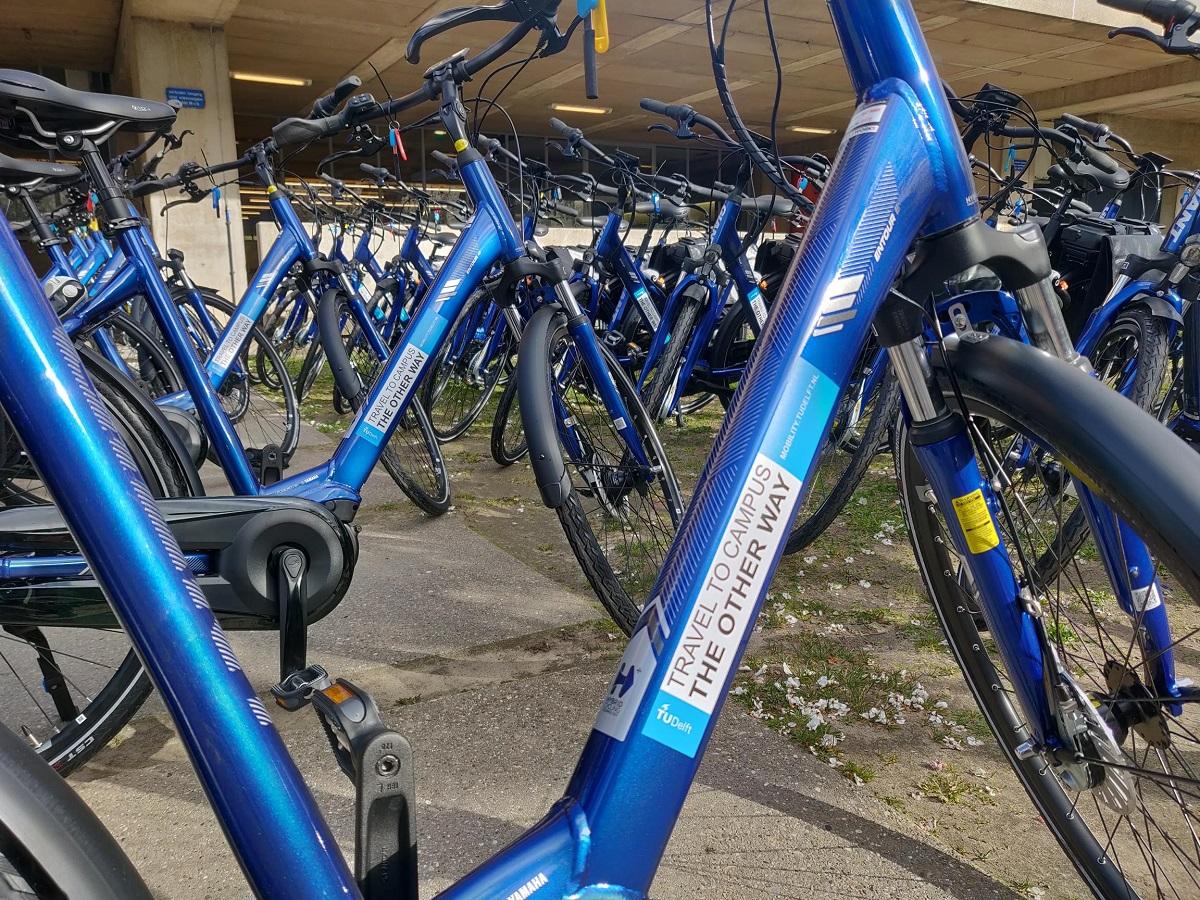For the first time a university of applied sciences wins the annual prize for the ‘most sustainable’ institute of higher education – Van Hall Larenstein. TU Delft comes 23rd.
An example of sustainable business operations is last year’s public transport trial. (Photo: Marjolein van der Veldt)
The idealistic Studenten voor Morgen (students for tomorrow) have been awarding the SustainaBul prize since 2012. They look at the role of sustainability in education, research and operational processes.
Both Van Hall Larenstein and Wageningen University are duty-bound to score well in the annual rankings, given that they have many ‘green’ degree programmes. Wageningen University, this time coming third, has already won many times and Van Hall Larenstein usually does well too.
This year, best practices are being considered too. The Utrecht University of Applied Sciences won a public prize in this category for a sustainable block of flats. Two students planted the seed for this project in their graduation research.
The 30 largest institutes were evaluated in three rounds. The people behind the ranking first looked online to see what they could find in terms of ‘green’ goals and policy plans. Then the universities of applied sciences and universities could add to that information. Twenty institutes did so.
Brief information
TU Delft delivered very brief information, said a Studenten voor Morgen spokesperson. Still, in contrast to the last two years, TU Delft was included in the evaluation this year. The students had to mostly make do with the information they could find online. This put TU Delft in 23rd place.
TU Delft’s score was divided as follows:
- 36.5 of 110 points for sustainability in education
- 72 van de 110 points for sustainability in research
- 52.5 van de 110 points for sustainability in operations
- 10 van de 30 points for best practices.
In part, a lack of information explains TU Delft’s low ranking, explained a spokesperson of Studenten voor Morgen. “We could not find much information and that played a role.” Gerrit Kahlman, Coordinator of Sustainable Operations at TU Delft, says that at present he is unable to answer any questions.
- You’ll find the SustainaBul 2020 ranking here. (Dutch)
Do you have a question or comment about this article?
redactie@hogeronderwijspersbureau.nl


Comments are closed.